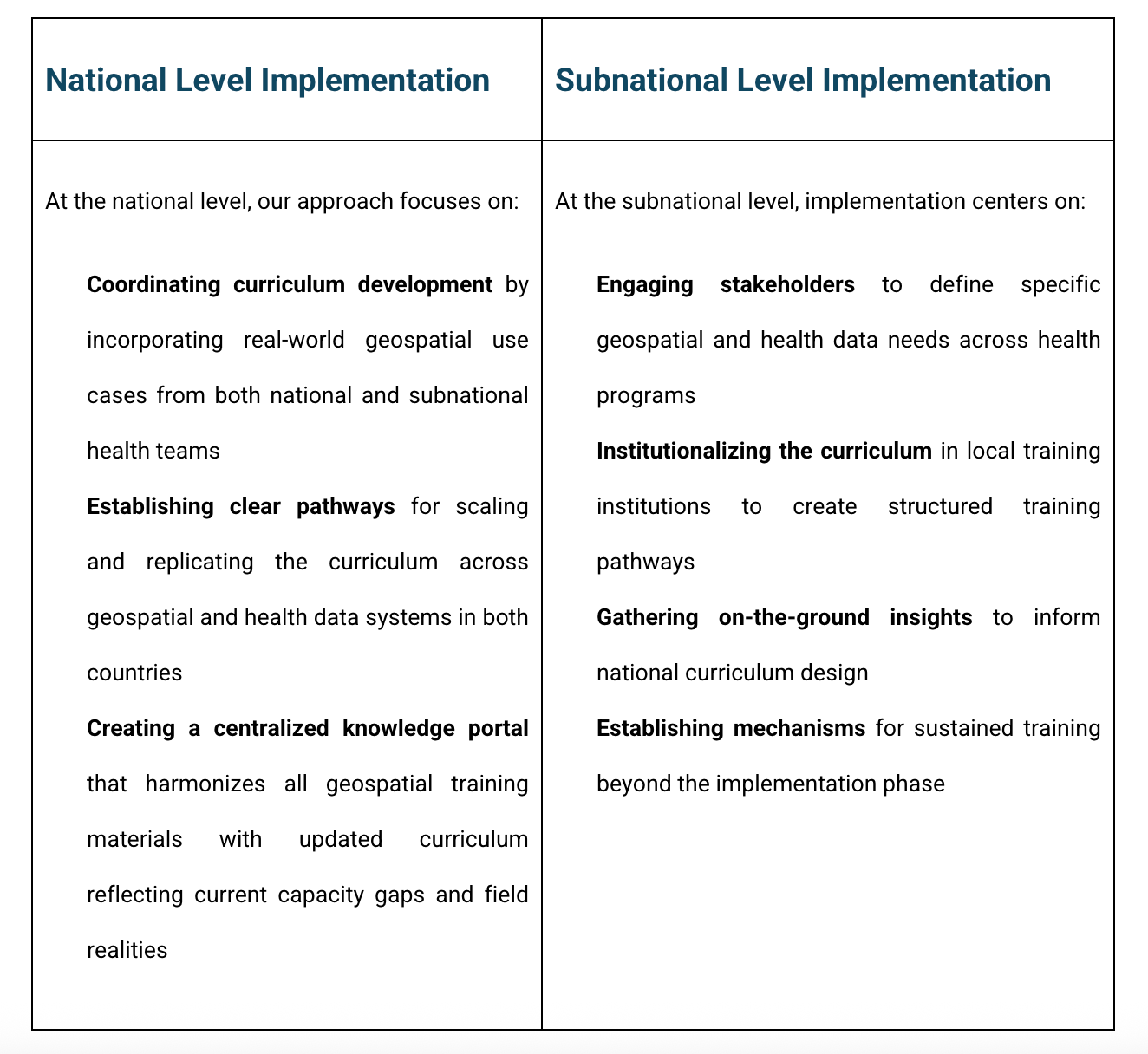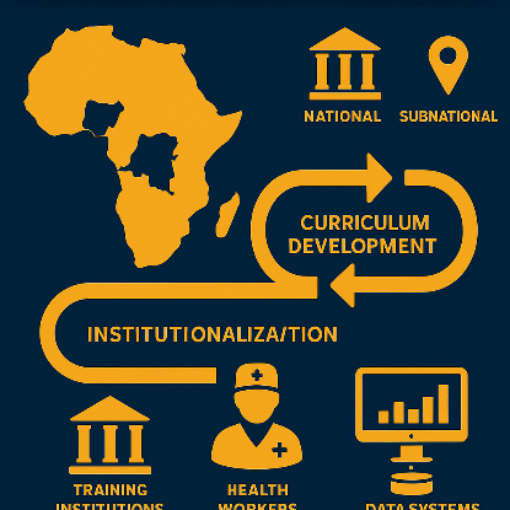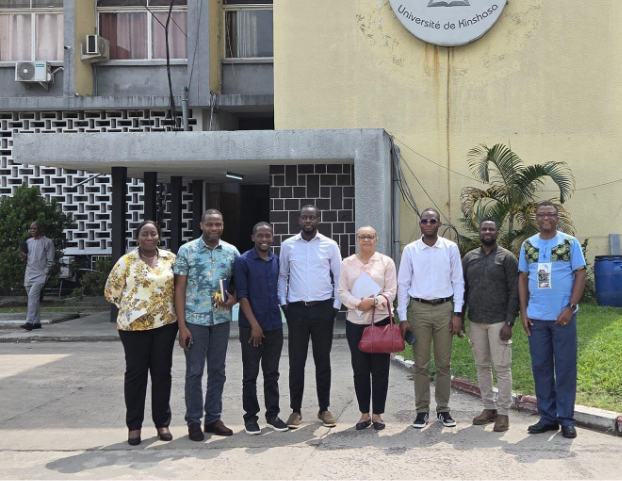umbrella-fund
4 min read
Portability and Replicability of Geospatial and Health Data Training Programs: The Umbrella Fund's First Strategic Investment

Following extensive stakeholder consultations, the Umbrella Fund for Geospatial Interventions has launched its first investments focused on establishing standardized, transferable geospatial training systems in Nigeria and DRC.
In late 2024, we introduced the Umbrella Fund for Geospatial Interventions – a new approach to strengthening health systems through locally-led geospatial solutions. Today, we proudly share details about our first set of investments, which address a critical challenge identified in both countries: the need for sustainable, locally-relevant geospatial training programs.
Addressing Systemic Capacity Gaps Through the Geospatial Value Pipeline
The 2022-2023 Geospatial Value Pipeline assessments conducted in Nigeria and DRC identified critical capacity limitations that hinder effective health service delivery. Despite significant investments in geospatial technologies, frontline health data teams often lack standardized, sustainable training pathways.
Our stakeholder consultations revealed specific challenges within the Geospatial Value Pipeline's capacity-building sub-pillar:
- Fragmented and uncoordinated geospatial training programs that appear and disappear with project cycles
- Limited integration of local use cases in training materials
- Unsustained capacity development initiatives that end when funding concludes
- Misalignment between training provided and actual field needs
This calls for a more coordinated approach to designing and delivering geospatial training that is in line with the realities, capacity, and requirements of the health data teams working at the forefront of primary healthcare delivery.
A Two-Tiered Implementation Approach
Based on these findings, the Umbrella Fund for Geospatial Interventions is deploying targeted investments in both Nigeria and DRC. We are using a structured, two-tiered implementation approach with specific interventions at national and subnational levels to create sustainable training systems that are integrated with existing institutions, responsive to local needs, and designed for long-term impact:


Country-Specific Implementation
Additionally, this two-tiered framework is tailored to each country's unique geographic and institutional context:
In Nigeria, our approach focuses on, among others, formal partnerships with accredited institutions such as University of Maiduguri and Bayero University Kano, and the establishment of a centralized knowledge portal harmonizing existing training resources. This represents a fundamental shift toward making geospatial competence a standard skill for health workers at all levels.

In DRC, the vast geography of geospatial and health data use for health programs planning and delivery requires a tailored approach for capacity development. With 26 provinces, each with distinct social and systemic constructs, and spanning an area the size of Western Europe, a generalized and uncoordinated training model for the entire country is not sustainable.
The investments focus on establishing a regional network of training hubs through the Kinshasa School of Public Health and provincial universities such as Université Officielle de Mbuji-Mayi, Université Officielle de Bukavu, Université de Lubumbashi, and Université de Kananga, adapting curriculum to local disease patterns, languages, and technical contexts, and creating peer-learning networks to enable provincial health teams to share knowledge and best practices, among others.

Through this approach, we ensure that the Portability and Replicability of Geospatial and Health Data Training Programs addresses both common structural challenges and country-specific implementation needs.
Measuring Impact
With implementation scheduled from June to December 2025, these investments will create measurable improvements in how health programs use geospatial data:
- 800+ health data personnel will be trained in Nigeria through formalized programs
- 1,000+ health personnel will receive training across multiple provinces in DRC
- 5,000+ health areas will benefit from improved geospatial capacity
- 96% cost efficiency compared to traditional capacity building approaches
- 40% cost reduction in capacity development when deployed in similar ecosystems
- Reduced dependency on external partners for ongoing training and support
Most importantly, by embedding these skills within established institutions, we ensure sustainable capacity that continues long after specific funding ends.
Looking Forward
This focus on building local geospatial capacity represents a foundational element of the Umbrella Fund for Geospatial Interventions' approach. In our next blog post, we will share more details about the implementing partners, specific frameworks, and methodologies being deployed across both countries as these initiatives advance.
By strengthening local capacity to collect, analyze, and use geospatial data, these investments will directly improve how polio surveillance, malaria prevention, and immunization campaigns reach vulnerable communities across both countries.
The Umbrella Fund's model – providing catalytic funding for locally-led solutions – demonstrates how targeted investments can address systemic challenges in health data ecosystems. As our work expands to other strategic areas, we will continue sharing insights and results.
Follow our progress at www.umbrellafund.org and on LinkedIn at The Umbrella Fund for Geospatial Interventions.